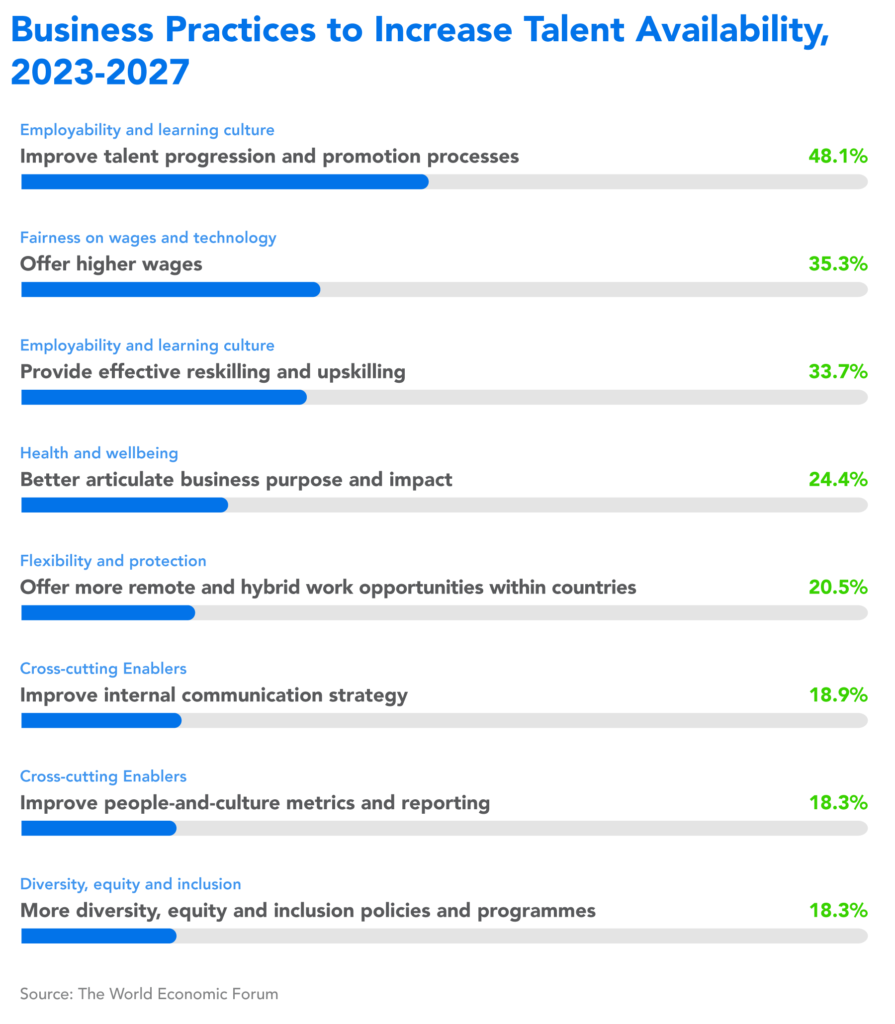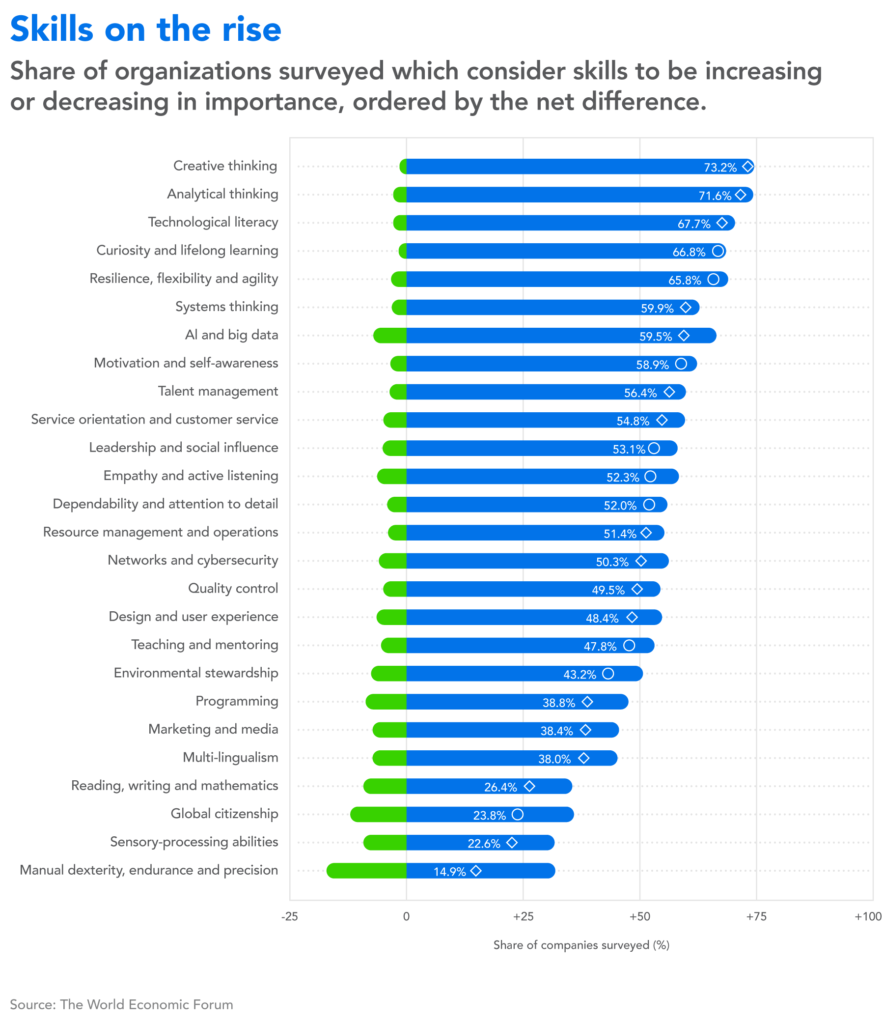How a ‘Skills Passport’ could shape the future of employment
Jobs are giving way to skills, with internal ‘gigs’ helping employees gain experience across functions, embrace new tech and stay employable.

Once estimated at 10 to 15 years, advances in technology have cut the average half-life of job skills to less than five years, forcing companies to rethink their talent strategies.
Employers estimate that 44 per cent of workers’ skills will be disrupted in the next five years. And over the coming decades, hundreds of millions may need to be reskilled entirely—a complex challenge with far-reaching implications for society.
According to Tanuj Kapilashrami, Chief Strategy and Talent Officer at Standard Chartered, when employers talk about the ‘war for talent’ it is actually a ‘war for future skills’ that will disproportionately impact business growth and client outcomes.
“Technology is disrupting the way we work so quickly that businesses like ours will have a massive responsibility to start focusing not just on employment, but employability,” she says.

Nearly half of companies surveyed in WEF’s latest Future of Jobs Report agree that building a learning culture and improving talent progression is a promising way to cultivate talent availability in the coming years—more than any other practice.
“How can we make our workforce ready to not just embrace disruptive technologies, but to remain employable within and beyond our organszation?” Kapilashrami asks. “This is the question that companies face today.”
The answer may lie in practical skill building and a concept called the ‘Skills Passport’.
Removing boundaries to grow internal talent
Imagine you sell green bonds for a bank. The marketing team is developing a strategy to differentiate your offering. You know the product, so your insight could prove useful. And you want to learn about marketing, so you ask to pitch in.
In many companies, micromanagers and rigid job responsibilities would keep you in your lane. But forward-thinking companies increasingly view such situations as opportunities for skills development, knowledge transfer and cross-team collaboration.
Standard Chartered, for example, deployed an AI-based internal Talent Marketplace to match business needs with employees’ skills. Managers post project-specific ’gigs’ on the marketplace, and employees apply using their ‘Skills Passports’ to show what they’re capable of beyond their job descriptions.
< 5 yrs
The average half-life of job skills today, thanks to advances in technology
44%
The proportion of workers’ skills that employers estimate will be disrupted
< 15%
Few leaders believe that learning is a part of their core strategy today
“It’s a way to democratise access to opportunities and create a platform where people can put their skills to use,” Kapilashrami says. “People can use these opportunities to reskill or upskill, which helps them remain employable for longer.”
Each project adds to an employee’s ‘Skills Passport’, reflecting what they’ve done and what they can do. As employees strengthen their passport, they can unlock more internal opportunities given their increased skills. It also sets them up for success beyond the bank.
Some managers might take issue with their employees working on projects beyond their remit. Standard Chartered has guardrails in place to ensure that employees spend no more than eight hours on these side gigs each week.
Thus far, it’s working. Over 39,000 employees are currently on the internal talent marketplace. And the bank has unlocked over USD8.5 million in terms of productivity since the marketplace launched by deploying skills at speed across its network through more than 2,700 ‘gigs’.
A passport to success in the era of Gen AI
The ‘Skills Passport’ could prove even more valuable as companies embrace Gen AI. Nearly two-thirds of organisations now regularly use Gen AI, and most expect the technology to disrupt their industries in the years ahead.
It would be logical to conclude that employees should sharpen their technical skills against this backdrop. Yet the Future of Jobs Report shows that analytical thinking and creative thinking will remain the most needed skills over the next five years.
Using Gen AI to its full potential may have more to do with analytical and creative thinking than technical skills. And using ‘Skills Passports’ to find employees with the right skills could play a vital role.

However, underinvestment in learning and skills development could prove a stumbling block for many companies. Less than 15 per cent of leaders in a 2023 survey believed that learning constitutes a core part of their company’s overall business strategy.
“Companies face skills, leadership and cultural gaps,” says Kapilashrami. “The companies positioned to make the most of Gen AI are those that close the gaps holistically, rather than treat it as a pure tech challenge.”
A holistic approach also entails rethinking where companies source external talent as the skills required evolve. Kapilashrami believes this could foster greater inclusion.
“Curiosity and thinking outside of the box underpin some of the jobs that are arising,” she says. “We can find these skills in pools of talent where education levels are very different, creating opportunities for people from various socioeconomic backgrounds.”

Breaking with traditional hiring and upskilling practices will take time. To make the ‘Skills Passport’ work, employers and employees must make conscious choices in how they position themselves for the future.
“Employees who lean in, can continue to improve their employability and really grow,” Kapilashrami says. “Over time, they will come to expect such opportunities from their employers, which is something more companies should be thinking about.”
Increasingly the balance of power is shifting from employers to employees who possess the specialist skills needed. The journey to being a skills-based enterprise is a significant asset in not just future-proofing a company’s business model but also a massive contributor to its employee value proposition.
“Jobs are giving way to skills as the currency of work to create more agile, resilient and flexible organisations,” Kapilashrami adds. “It’s those skills-powered organisations that are unlocking productivity, increasing equity and proving to be economically sustainable.”